![05feature2[b]](https://chico.newsreview.com/wp-content/uploads/2023/11/05feature2b-678x381.jpeg)
Editor’s note: This essay was written by Kevin Jeys, a one-time CN&R editorial staffer and longtime infrequent contributor to the paper. After surviving the Camp Fire, Jeys stayed home. He’s been in Paradise for the five years since, tending to many animals, absorbing the difficult stories of his community and bearing witness to the kindness of friends and strangers.]
When the white people came to North America they regarded it as a “shining city on a hill,” gifted them by the deity, with which they could do as thou wilt. Everything here was promised to them, and everything here they should have. This spirit moving them still when they exhausted the continent and reached California, where it came to pass the Californians believed that among the everything that was promised to them, was power. The state bigger than most nations contained some of the most rugged terrain on earth, yet nowhere in California to the people would power be denied.
What is today known as Pacific Gas & Electric Company began as a clutch of gas people, bringing light to San Francisco; joined then by Yuba miners who’d learned to whip water ’round to get at the gold; these brainshowered waters could also move great wheels that would spark power that could travel in lines to an Oakland railway in need of electric juice. So that then happened. Originally, it was all about the Bay Area, PG&E. But then the company ran wild, to fulfill the American promise for all the Californians, erecting towers and stringing lines all over the north state, connecting everybody with everybody—wherever you were, you deserved power!—bulling its towers and lines through high wilderness where even the wolverines might balk to go. Extending its grid through all and every bumfuck, so that even if you lived in some other bumfuck, many hundreds of miles away, you could still have power.
This was quite the feat.
Of course, once you build something, you then have to maintain it. Because the second law of thermodynamics waits for no one, in moving all physical systems towards Fail. But maintenance can seem stupid and boring, compared to moving on to the next new big flashy thing, and so it can become like the redheaded stepchild, who everybody ignores.
Until she sets the basement on fire.
And so it was that on the morning of Nov. 8, 2018, out in the bumfuck near Pulga, PG&E was running power through high-voltage lines on towers well over 100 years old. Once was the company would send people shinnying up those towers, to inspect that where all connects all was right. But why use people—they’re so expensive!; “negative cash flow”—when you can lean more on machines? So instead workers were now assigned to gaze up with binoculars from below, or look down from helicopters or through drones above. Cheaper, you see, that way. Except, that way, you can’t, truly, See.
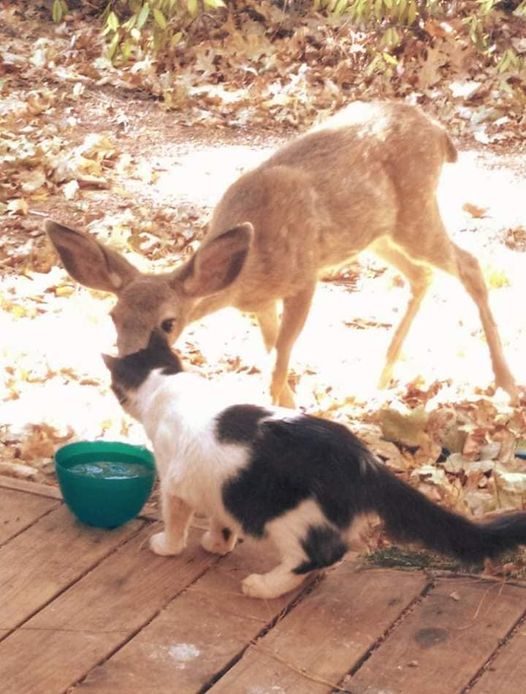
And that was when the company even bothered. For Chico attorney Ken Roye over the previous several decades had recurrently sued PG&E over various fires it ignited in Butte and neighboring counties. During which proceedings it emerged PG&E wasn’t devoting a lot of attention to tower maintenance, or to clearing vegetation around its lines. In the settlements to these lawsuits would routinely be provisos that in these areas PG&E would henceforth do better. Until there was the next fire, and the next lawsuit, and the next discovery that the company, contrary to promises, really hadn’t done better, much at all.
On that morning, Nov. 8, 2018, on one of those 100-plus-year-old towers, out in the bumfuck near Pulga, was a big hunk of curved steel called a C-hook that the second law of thermodynamics had for years been bringing to Fail. It was, that day, worn through. If some “negative cash flow” had been assigned to shinny up that tower, and there regarded it—Seen, the thing itself—its failure would have been apparent. And then, presumably, it would have been replaced.
But. No. That did not happen.
Instead, what happened, that morning, is that high winds came up out of the Feather River Canyon—“Jarbo Winds,” they’re sometimes called; winds that swirl around the high Sierra, seeking to mate with the California coast, achieving passage through a narrow chasm the white people call Jarbo Gap. Generally, these winds, though high-stepping, are benign. When they have water on them. But there was no water on them this day. There had been from the skies hereabouts no water in any measurable amount since May. And, down on the earth, most everyone who was a plant, was tinder—literally—dry. The Jarbo Winds, that morning, blew that C-hook, into complete Fail; it broke, dropping a wire, which also broke; and then the electricity, from out of the wire, it commenced to spark. In the tinder. Dry.
Fire. On the mountain.
The nascent flames found, frolicked through, a vast stretch of logger slob; great yawning acres where the tree-cutters had taken what they wilt, and then, as is their wont, left their lazy-ass sloppy firestarter slash all behind. And the newborn fire, it exulted, in this fuel. Whipped by the winds, sucking its life from the logger detritus, the fire danced into Concow.
The native peoples of Concow knowing of fire from time into mist; in one story, in their oral tradition, wildfire takes all of their people, every one, but one man, and one woman, who, in the after of the ashes, arise the tribe anew.
This time, the fire came for an aged man, who sent his family away, but stayed behind himself, to try to find his cat. He burned. As did his cat. Another Concow man tried to flee from the fire in his car. Didn’t work. For the fire burned faster than any car. Later they managed to scrape his remains out of the car. But not those of his dog, which were melted to the seat. Another man tried to run from the fire. No. The fire took him where he ran.
A Concow grandmother, the fire bearing down upon her, pleading on the phone with the authorities for help, was told to jump in the lake. Literally. Just get in the water, she was told. And stay there. We’ll come for you, when we can. And that happened. Eventually.
But Concow, that was just an appetizer, for this fire. What it was really about, was Paradise. And by the time it entered this town, the fire, it was a wall. And long before sundown the whole town, some 95 percent of it, would simply be gone. Burned. Away.
This being the day, that the shining city on a hill, that was Paradise, became the burned down city on a hill.
Paradise was founded by white people who came to this hither from yon for the gold. To this day in this town is celebrated Gold Nugget Days, remembering when some white-people miner unearthed up in the hills a hernia-inducing 54-pound ultra-nugget and brought it down to the ur-town athwart a burdened donkey.
The native peoples of the region had cared not for gold—what good was that shit?—but the white people, they were all about it. So they came, they dug, they scrabbled, they sifted, they sieved, they firehosed, they exploded. And, they built shit. They put up stores, homes, hovels; whatever, wherever. In this, there was no “planning.” And that continued well into the 20th century. When I reached this area, in the mid-1970s, Paradise was still, planning-wise, wild-westing. In a thing called “four-by-fouring,” where, taking advantage of loopholes in the then-existing laws, you’d take your big piece of forested property, divide it into four parcels; these would then be divided, again, into four; those then divided, again, into four; and so on; until, eventually all and every could go hat in hand to the county board of supervisors, and say, “Well, shit; this piece I got, it’s so small, there ain’t a thing I can do with it, ’cept mebbe put a house on it.” And the supes, they would say: “Bless you, my son. Go, and be about it.”
And so what you had, all crazy-quilt, was a town built in a forest. Which was precisely its charm. Humans were never really dominant here. There was, o’er all, first, the trees. And then, out of the trees, the animals. Everybody in town always had some animal who they did not rule traipsing across their land. I mean, that’s just what was. And we liked it. We wanted, all of us, to just live in the trees. In the forest. Like all the other animals. The trees so thick that even if your neighbor was Marvin The Meth Monkey you wouldn’t really have to Know—unless he played the metal real supra-loud, or started wildly firing off rounds for No Reason. Because, between you and him, would be the trees. Because. You lived in a forest.
But, there is, we know now, a Problem, with living in a forest.
And that is. Sometimes. Forests burn.
One of the very first responders to go out that morning when the town was burning down was a Paradise police sergeant. On a report of a lawn fire, in far east Paradise. And to this call, he did go. He reached the place: he beheld the fire. He opened the trunk of his patrol vehicle, withdrew his little fire extinguisher, and hosed the fire down. Put it out. Felt, then, satisfaction. Job. Well done.
Then, he gazed up unto the sky. Saw embers arcing, streaking, dancing, exultant, triumphant, flying, overhead, landing upon, sparking, burning, all, and every.
And, he knew. One little fire extinguisher. In the back of a patrol car. Was not going to be enough. To stop this fire.
This man, one of so many heroes, who will never be known. He radioed back to headquarters the town was becoming all fire. He quickly drove by his house, saw flames coming, knew it was lost, made sure his people would get out, and then he drove into the fire. Into the fire. Drove into the fire all the way to the far north of town. To the Optimo.
Where the mothers there gathered were considering how best to kill their children.
The fire all around. Evacuant fire trucks trying to get through; but, on all roads, for hours, blocked by fire. The people, more than a hundred of them, there at the Optimo restaurant, sheltering on a stretch of asphalt. So desperate they drew bottles from a parked Pepsi truck, arrayed them in a perimeter all around, hoping that when the fire came it would first overheat and thereby pop the bottles, and then the Pepsi, fountaining from the burst bottles, would douse the fire.
Hear them. The Optimo women [via online group posts]:
—I remember that moment more clearly than any other moment throughout that day. I felt like my knees were buckling from the sheer panic and all I could think was I have to save my child, I will not let him burn, I was prepared to go to any extremes to save my child. For the most part I kept my mind on how to save my kid and coming up with different exit strategies and plans to protect him but there were moments, and I apologize if this is a bit too dark, I would think what can I do if we absolutely can’t get out to at least spare him any suffering. Those thoughts and emotions will haunt me forever.
—The fire got so close, only feet away on all sides of us, I had to keep E—and my g-ma and aunt ready for a last ditch effort to escape. When you hear officials saying goodbye messages to their families, you know. They were just as cut off, trapped, and scared as we were. It really is just so insane, it doesn’t feel real. Only that we had this whole life that vanished overnight and it only exists now in the pain of its absence.
—People living on the corner started handing out water bottles and we were able to drench pillowcases to put over our son’s mouth, a total lifesaver! I lost service early on, I was on the phone with my mom and the last thing I told her was about the Pepsi truck, what they were planning, then I lost the call and could not communicate anything to my loved ones. Then a sweet precious woman let me use her cell. It was only then I found out my grandma and aunt were huddled in that parking lot as well. You’d think I’d have seen them but when your mind is completely focused on how to save your child it’s hard to be observant of familiar faces. So truly thankful for her kind heart!!!
After, fire survivors, sometimes, they would gather in groups. There became a group, I know, specifically for those who had been at the Optimo. But I myself never tried to go there. Because I didn’t belong. Because I had not been there. That hadn’t been my fire.
Everybody, had a different fire. Like the woman, coming out of upper Paradise, her husband at the wheel, traffic stalled; up ahead, a burning tree, crashes down, upon a car, and the man inside the car, he begins to burn. Her husband places his hand upon her head, lowers it, so she cannot see. But. Still. She can hear. As she hears. To this day. Another woman, driving, having made it to lower Paradise—at last! nearly out of it!—and then from out of the trees comes a bear, a bear burning, the bear, it is running, and it is burning, the bear is on fire, and it is running, and it is burning. Or the woman who managed a supermarket up here, who when came the fire chased all her employees out, and then discovered an elderly woman seated in her car out in the parking lot, who said that there she would ride out the fire; and the manager-woman spent precious minutes coercing this woman out of her car and into her own vehicle, and then, driving through fire, she brought that woman into Chico. The manager-woman insisting thereafter to her husband she was fine. Until, some time after, she shut down, and withdrew into a room. And then. Remained there.
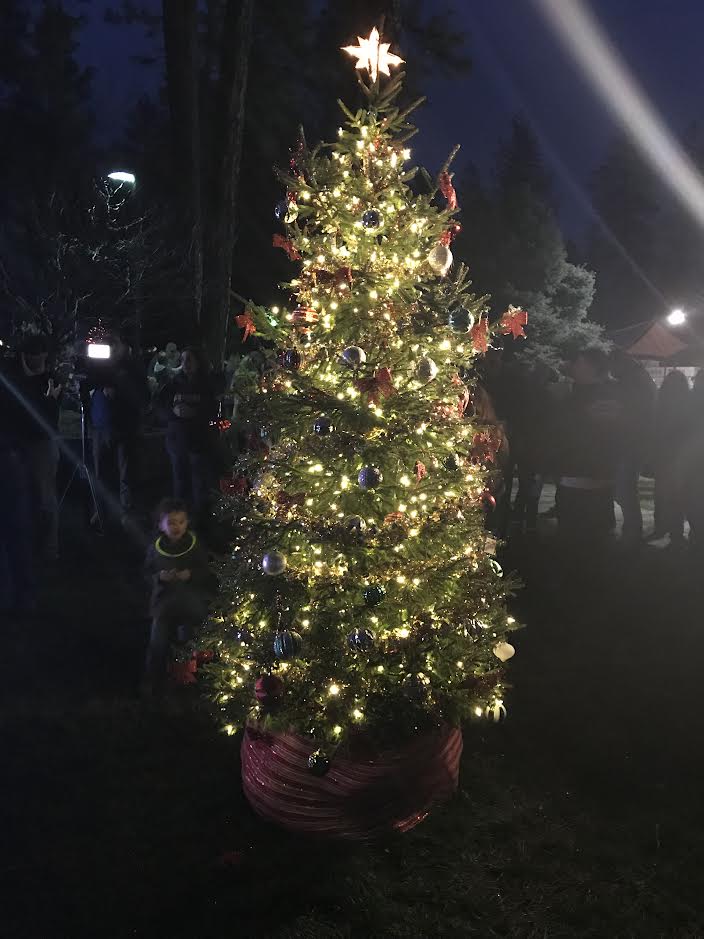
The fire took all of that Safeway shopping center. It was very nice, wood-fronted. The fire ate it all up. And that car, where the elderly woman would have tried to ride out the fire, it remained parked there, nothing else around it—all burned—for months. For more than two years. Until they finally cleaned the rubble of that place away. And every time that I’d go by there on the bus, and I’d see that car: the fire, it would all come back.
The bear. It is running. And it is burning. The bear. It is on fire. And it is running. And it is burning.
As everybody had their own fire; after, everybody went various ways, to try to surmount the fire. The Optimo women, I know a lot of them went to the eyeball therapy— Eye Movement Desensitization and Reprocessing. EMDR they call it in the acronyms, where a healer flashes some light into your eyeballs, as you’re talked through the worst moments of your life. A thing developed for soldiers with PTSD. And then, if it works, you can come out, if not healed, at least calmed; maybe, even, relieved. In the months after the fire bodhisattvas came here and offered EMDR for free to fire people. I’ve never been to EMDR myself, but a lot of the Optimo women say it worked for them. And so, I am for it. I am for anything, that works. Once, coming back up to town on the bus, not long after the town had burned down, and then reopened, I rode with no one but a young woman, silently weeping, who, in the fire, had lost everything; she was going that night to what was basically a camping site, somewhere in ever-colding Magalia; but down in Chico that day some people from Samaritan’s Purse had given her two bibles. That’s all she had. But, she was clinging, in comfort, to that.
Who am I? To deny her?
Though sometimes there be dragons, in invoking the deity, in re the fire. A woman, a friend, who lived in that neighborhood back of the Save Mart, she lost everything in the fire, the fire burned it all, including her animals, and burned too the homes of nearby nearly everyone else. Only one man, his house, the fire didn’t burn. And he took to saying that was because “God was watching out for me.” And my friend, that hurt her. Deeply. Because did that also mean that God, he wanted that her home, her animals, be burned?
This woman, shortly after the fire, went into deep anger. She publicly listed, in great detail, everything she had lost. And, like pure grieving Fury, she called down anathema, upon PG&E.
A lot of people did that. Do that. To this day. And who can blame them?
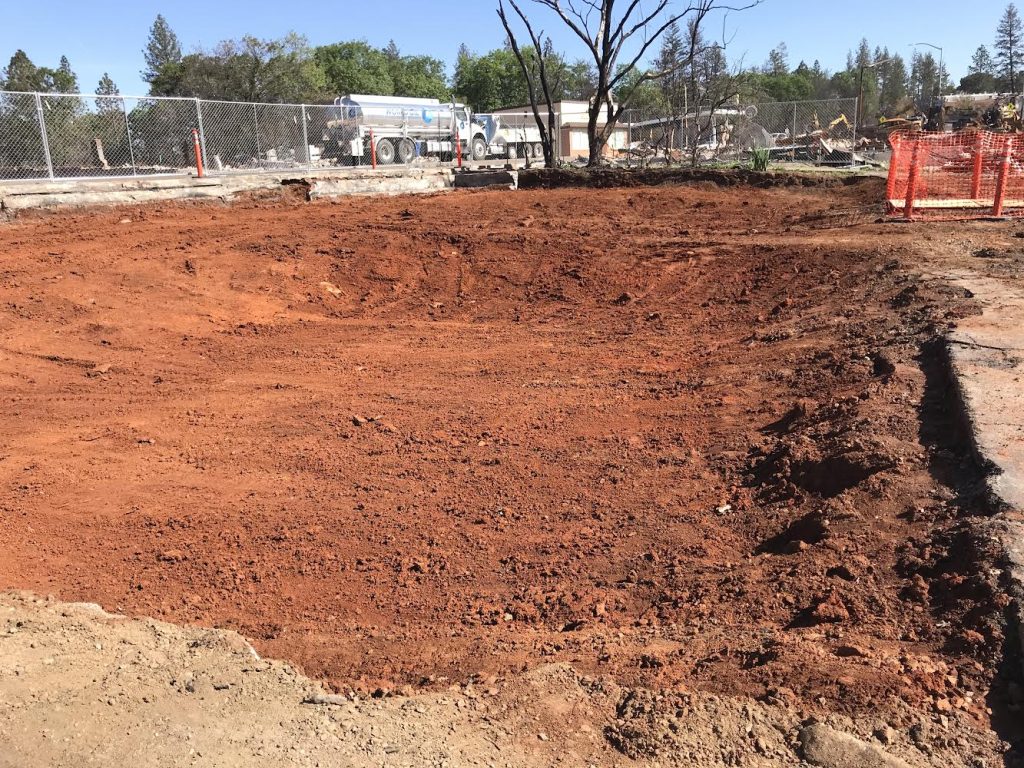
What really most hurt this woman was the thought that her dogs, her chickens, they had perished in flame—burning, on fire. She couldn’t get that, those images, out of her head. She was in agony. Until I told her that the best judgment of the fire-studying people was that almost everybody, human and animal alike, entered, there in the fire, death not from bursting into flame, their bodies actively aflame, but from smoke inhalation. Everybody who’s ever stood around a campfire and had the wind blow the smoke into their mouth knows what is smoke-inhalation. It’s just that, when you die from it, you can’t get away from the smoke. The smoke-inhalation, it doesn’t stop. Until you pass, into unconsciousness. Then. Death. There is a 911 tape out there, from that day, where you can hear three generations of Paradise women, dying, from smoke inhalation. I’ve heard it. I don’t recommend it. Neither does anyone else I know who’s heard it. But my friend, the smoke-inhalation knowledge, this comforted her. Her animals passing, whole, into unconsciousness, and then death—that was better than the images, ceaselessly inflaming her brain, of her animals dying, from bursting into flame.
This is what, here in the fire people, we try to do for each other. Make it less bad. Hard. Insurmountable.
Of course, it doesn’t really often work. But. Still. We try.
F. Scott Fitzgerald, he knew the lives, of the fire people:
“So we beat on, boats against the current, borne back ceaselessly into the” … fire.
Animals. Really not too long after the fire, some non-burned people, they started saying, to we burned: “get over it.” Like: time’s up. Stop it. All that suffering.
But who’s going to explain, such as that, to the animals? As I was then meanwhile reading, day by day, there in the fire tubes, stories, of the animals.
Hear, now, the animals:
—I drove into a garage that smelled strongly of smoke. My dog went berserk, barking and lunging on her truck bed containment chain. She did the same thing when I had her with me to go pick up something at my old home. She started barking a quarter mile away and it was not because she was excited to be going home. She was frightened.
—My two dogs drove with me thru the fire for 4 hours, they cried and whined and barked the entire ride. They are now clingy, depressed, needy. The 13-year-old is never gonna be the same and he has had several seizures since the fire. They are afraid of everything.
—My cat startles very easily, hates when I do any kind of cooking, and if the fire alarm goes off he freaks out.
—Our big bruiser cat is a nervous wreck. My Gunther got bloody diarrhea and died.
—One cat had back leg amputated and another will have one of his eyes removed.
—My Farrelle was lost up there for a month with burned paws. Went from 12 lbs to 6 lbs. Now he mostly hides under blankets on the bed.
—Our cat now follows me around like a dog. Doesn’t let me out of her sight.
—Dog has a honking cough that will not go away; taking medication for it. Bird died.
—We have 3 service dogs and they all need their own service dog now, they can’t and won’t be left alone anymore, they do this shaking and whimpering that’s got a pitch that hurts the ears.
—My cat hides about 22 hours a day still. I don’t think she’ll ever be the same.
I know that cat. That cat. I am. For, I also hide. About 22 hours a day.
As I too. Will never. Be the same.
When I told fire companera Melissa Daugherty I was putting her into this story she said “just don’t make me some kind of hero.” And I responded that of course she was a hero. As was everyone else who had been in the fire. And, after. That a fire that in less than six hours took a whole town of more than 25,000 people extinguished but the lives of 85 souls, meant that heroism, it was all and everywhere; it was all around. Not a single senior, in all the many senior homes up here, was lost. Neither was any child. As, everyone, that day, helped everyone. The stories, they are without number, of people fleeing in cars, who saw someone running from a burning home; opened the passenger door, and let them in. Not knowing them from Adam. Or even Eve. This was just a thing, that, all over that day, all the time, happened. We were all, the best of ourselves, that day. People expending precious fire-coming-at-them minutes to make sure more resourceless friends, neighbors, perfect strangers, could get out. My friend H, trying to bring stabled horses out of the flames, just some random man, he stopped, and he helped her load horses into trailers. And then. He drove off. To help. Somebody else.
That’s, who we were.
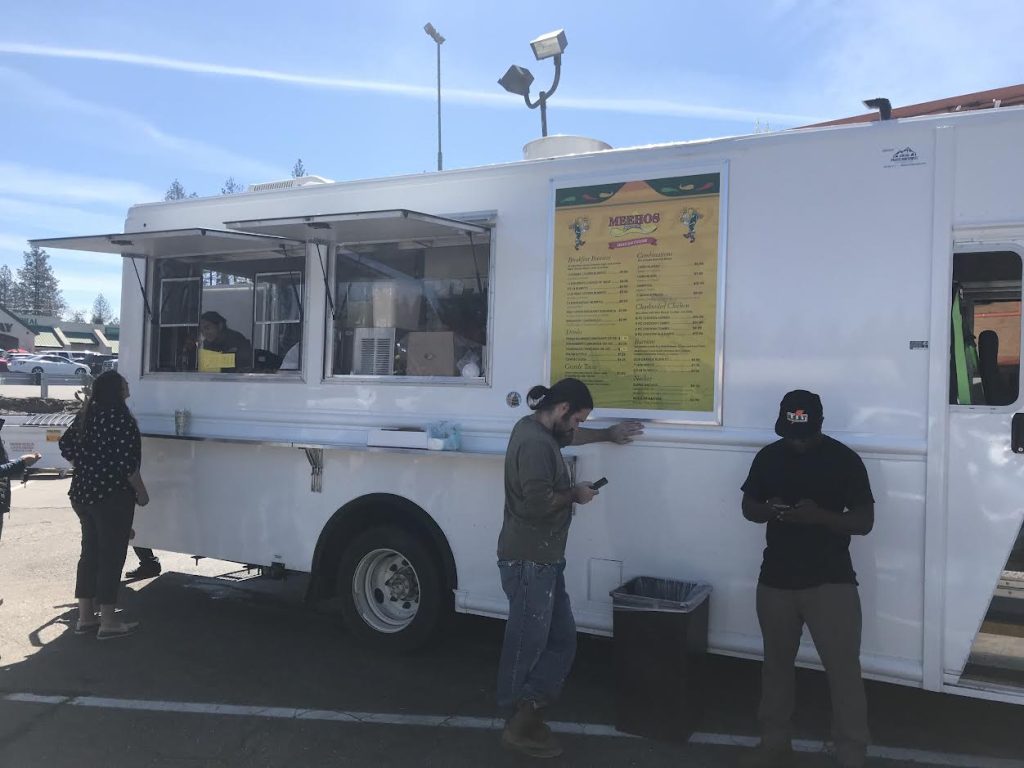
Melissa was the editor of the CN&R at the time and she didn’t have to come up here but after the fire came she came up here every day. And, in that, she burned down. She came and she witnessed up here the all and every. Saw more of the destruction than did I. The thing itself. She kept coming up, daily; among other things, to succor fire cats. As I became one of them. Once, I, marooned up here, with no power, no cooked food, she arrived with a modest bag lunch of Del Taco. And that was maybe the nicest meal I’ve ever had. Another time she arrived with a cellphone. A man in Marin, who I did not know, Crispin Barker, had read in the newspaper I had no cellphone, marooned here in the town burned down, and he decided I should have one. So he just bought me one. Complete with the Plan. And then sent it up to me, through Melissa. Bodhisattva. This man. So many of them. In. After. The fire.
I never got the fire dreams. Melissa did. The fire was coming, and it was coming for her child, and she could not reach him. This went on for years. When once PG&E admitted it had burned down the town, and there came the lawyers, with the lawsuits, to recover from the company “damages,” I urged her to apply. But she would not. She said she had not been in the fire itself, and so she was entitled to nothing. “I just lost my mind,” she told me, “and a lot of sleep.”
Fire burns sleep. I know of no one, since the fire, who was in, or after, the fire, who has since really slept. Like the man from Quincy, who told me he had worked fires and after-fires for 40 years, but after this one, he was retiring. Because it was just too much. When he’d go home at night, from the town burned down; in sleep, the dreams, they would come; and, in the bed, he would be kicking, and he would be screaming; until came the time his wife, she could no longer sleep with him. There was the fire captain from Los Angeles, who had worked urban fires for 25 years, who had been brought into the town burned down for his expertise in identifying mere fragments of bodies, who one morning stood out front my house, in silent tears, saying that, here, “after a while, everything just looks like bone.” There was the PG&E worker, assigned to come by to wave those magic wands they have, that can determine where under the earth the gas lines are buried, who told me that three days into the town burned down, waving his wand in deep brush, he came upon a dead burned dog. And he couldn’t get it out of his head. As. all. my tears. like water. flow. There was the utility worker from Louisiana, who after 17 days in the town burned down was flown home to spend time with his family. But, after less than 24 hours, he was back. “I couldn’t do it,” he told me. “I’m supposed to be here.” In Chico this man bought a bunch of battery-powered phone-chargers and then drove around the town distributing them to the few of us still here. One of these was an elderly man, lightly touched with dementia, whose home had not burned, and neither had the trees around him. And so, he was firm, in his conviction, that the town, it had not, in fact, burned down. There, had not, in truth, been a fire. The police, and the utility workers, they watched over this man, until his family could get to him.
Often, then, and to this day, I think of this man. For what a grace. It would be. To live in a world. Where the town. It never burned down.
Burnt fire companera K, when I told her I was writing this story, said she was glad, because I had stayed in the fire, and then marooned serviceless months after, and she wanted to know about that. But, to me, mine is just another fire story; no more, no less, than any other. Than, say, her own. When she summoned all that she was, there in the fire, to bring her horses out. Another hero. Who no one will ever know. And then the fire came, and took all she otherwise had. Cue, a couple years, passing. Insurance. It paid for a new house. A new barn. “Bigger.” “Better.” After years of living in a family-cramped trailer. But these “new, bigger, better,” things, they were not right. She wanted the old house. The old barn. But these will never again, to her, be known. Still, she tried to do her best. Until. She understood. She could not.
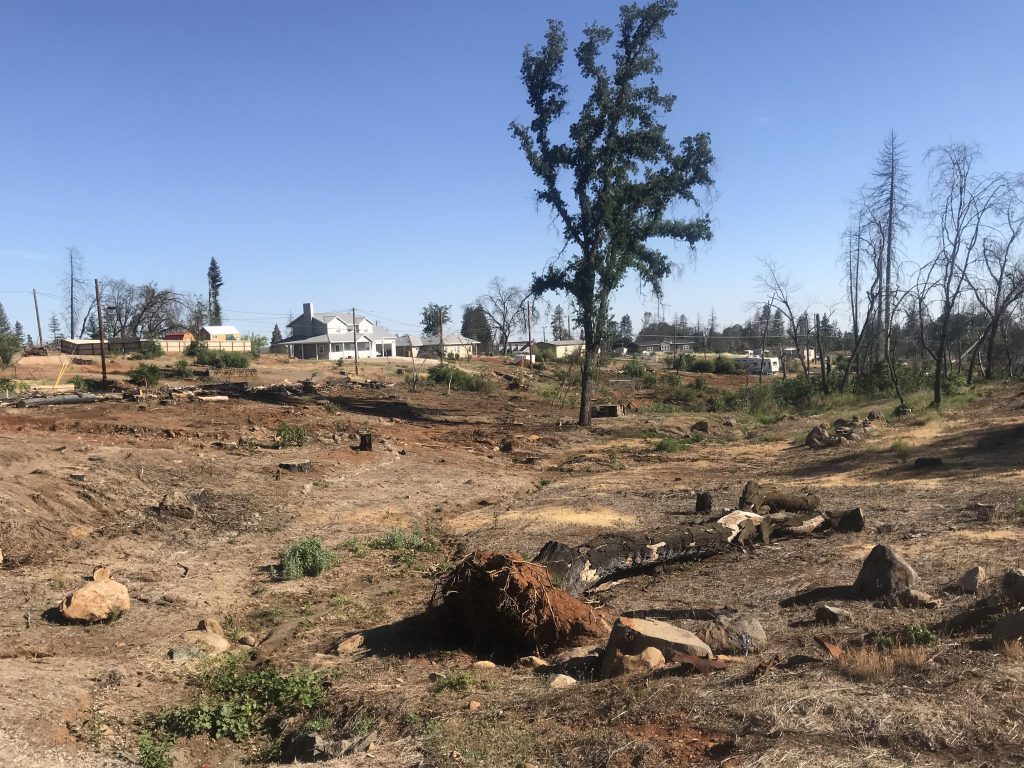
They say 14,000 homes burned in the fire, and so, in near every one, those who had once lived there, were, after, after they had lost all that they had, sentenced to the stations of the cross of calling up from memory, and minutely detailing in writing, all that was gone. For insurance. For the fire lawyers. This the sort of thing nobody wants to do. Because nobody really knows what they have, until it’s gone; and then bringing it back in memory, knowing it’s gone, just hurts. Because none of it’s ever coming back, and none of it can ever really be replaced. And this is true not just of cherished photos and mementos and whatnot, but of everything. Shortly after the town reopened, a fire companera and her aunt and I went to sift through the ash of their trailers. And her aunt said people down in Chico had been very kind, had furnished her with various thises and thats, to replace what she had lost, in the fire. But, it just wasn’t the same. “I got a new waffle iron,” she told me. “Which was nice. But I don’t want a new waffle iron. I like the one I had. I got a new toaster. But I don’t want a new toaster. I like the toaster I had.” These aren’t people being picky. This is just how it is. For in the regular course of life, a person will shed this, shed that, move onto this, that; but, in a morning, in a day, to have it all, taken away? “I sure didn’t think at my age I would start over,” wrote a burned person, in a fire tube. “It is hard to make old friends in short time. I will never be able to have new old friends. I will never get my things back or get to lean against my favorite redwood tree in my yard. I will never be able to pick up my old favorite guitar that has been with me forever. The old one that has been by my side since I was 15 years old. The guitar is gone and I will never be able to replace it.” That fire companera, of that day, she once described the fire, as like a murder. Because, in the burning, everything was just suddenly cut off. Forever. The night before the fire, she and her co-workers were laughing joking enjoying pizza at a store-wide staff meeting. Then, come the morning, came the fire. And though none of them in the fire perished, they never saw each other all together again. Because that, had been murdered. This same woman, she had another deep wisdom. When I told her that at a bus stop in Chico I’d overheard three homeless people who before the fire had been homeless in Paradise discussing whether they should file a claim with PG&E. One said, “I don’t know that I have a claim. I didn’t really lose anything. Except a bag with some clothes. And my dog.” And my fire companera, instantly, she said, “Of course they have a claim. They lost the community. That’s what we all lost.” Her family having made homes in Paradise for more than 150 years but she knowing that in the fire she was as one with those homeless people. As the fire rendered her homeless too. In her mid-20s, she should have been enjoying life, the belle of all balls, but instead, burned into a housing market as constricted as a smoke-choking throat, to live on the same land with her horse and her fire-therapy wolf-dog she ultimately had to carve out a place for herself well up in the hills, deep off the grid, living like her pioneer forebears of old.
Breaks. My heart.
All of it. Breaks my heart.
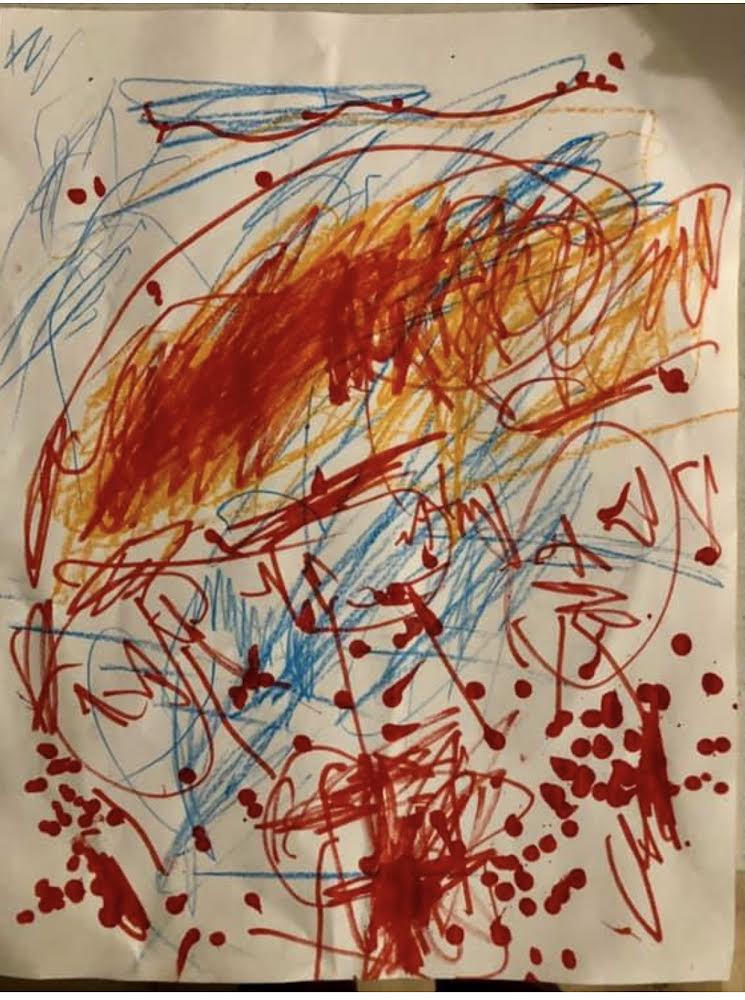
The deadline for this story is coming up very fast now, and though I really would like to/not like to, tell at length my own fire story, as K would command, basically, to me, it is frivolous, and embarrassing
So I’ll just here convey the key to it: that I got to live, in the thing itself, what I had always believed, against all evidence, through many scorns: that people, they are basically good.
For not only did everybody save everybody, there in the fire; but, after, thousands of people, strangers, came to the town burned down, from all over the country, even the world, to bring the town back. And, because I was “so stubborn I stayed in a fire,” as H would recurrently say to me, I got to witness that.
Everybody then was so kind to everybody. It was like a new world. No money ever exchanged hands. If you had something somebody needed, you gave it to them. And the way everybody greeted each other was, “Do you have enough water?” I came to believe, in the six weeks of maroonment up here, it would always be like that. H, she was feeling it too. With kindness she was receiving in Chico. And we’d talk, late into the night. About the kind new world. While my ex, T, she cautioned: “You’re setting yourself up for a fall. Eventually people will go back to the way they’ve always been.” And, of course, she was right.
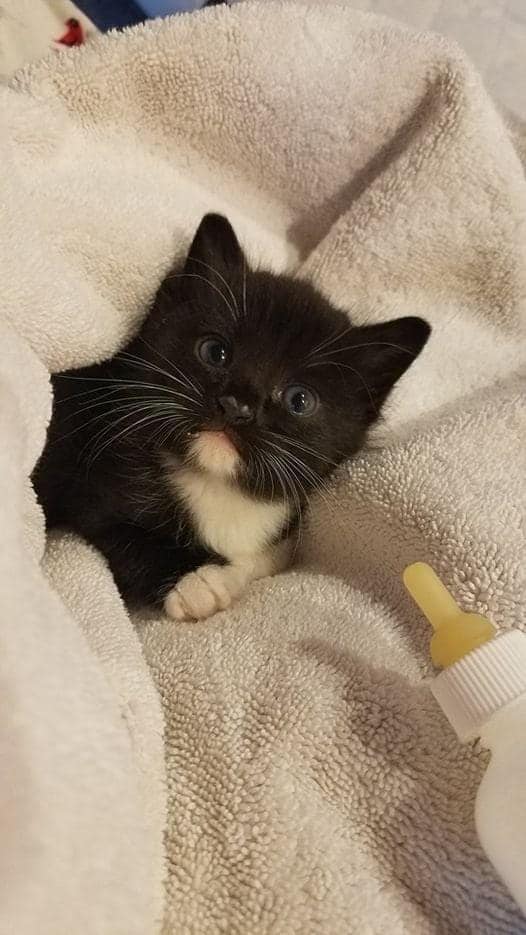
Even, as she was not. For I remember these two PG&E workers from Atwater, who kind of adopted me, would bring me the sack lunches they got, and about three or four weeks in, one of them said, “You know, I’d never even heard of Paradise until this happened. But now I think maybe I’d like to live here.” The town still a smoking ruin; the bodycatchers still pulling corpses out o the ruins. He said this amid a bunch of other workers here. And none of them said he was crazy. Because, they all felt it, too. They were. These people. Paradise.
So. I don’t care. Because I know. And it has been proven to me. I have seen it. I have been to the mountaintop. And I have looked over. One day, we all be one. It’s just a matter. Of waiting. For the time. To catch up.
Meanwhile, the white people, they came to California, and they built their towns. And now those towns, they are burning down. This is just a thing. That is happening.
As the white people, they came to California, and they killed all the grizzly bears. And then they put the grizzly bear on their state seal. As:
The bear. It is running. And it is burning. The bear. It is on fire. And it is running. And it is burning.

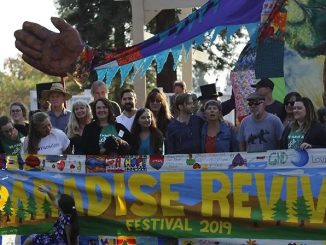
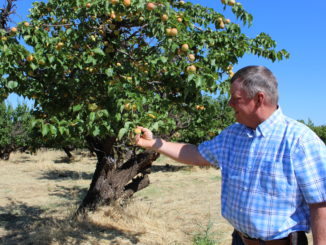
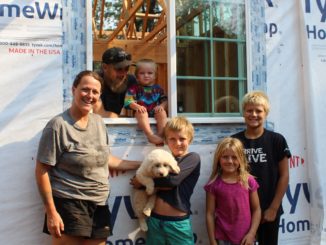
Kevin Jeys has written a moving, brilliant, and accurate account as a survivor of the Camp Fire. Personally, I never have driven up to Paradise to have a look. The reporting from CNR was my guide as to what went on the day five years ago. Now this essay comes along, and visualizes, with words and photos, what people of the community endured. Absolutely award-winning stuff there Mr.Jeys! I feel the pain and anger you felt while writing this truer than true, life story.